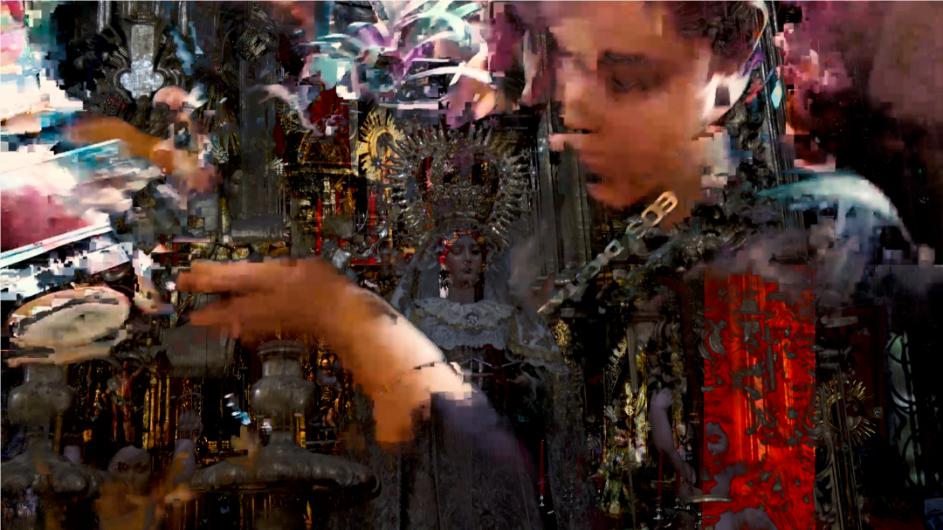This is the third of three linked essays whose purpose is to triangulate ideas from Plotinus’s aesthetic built on a feeling of love for higher reality (and the analogy between aesthetic experience and henosis, the unification of One that is beyond being), the cosmology in which Alfred North Whitehead unfolded the metaphysical implications of the science of electromagnetism, and feminist art and the experience of parler femme.
R. Bruce Elder
Plotinus, Woman’s Art, Electrology: What Ideas Gave Shape to Alone (All Flesh Shall See It Together), a Digital Sound and Moving Image Construction by R. Bruce Elder and Ajla Odobašić
In the first part of this three-part essay, I outlined my reasons for embracing the (admittedly contentious) idea that at the age of twenty-eight, the philosopher—actually, the religio-philosopher—Plotinus (204/5–270 C.E.) experienced, quite without preparation, his first episode of altered consciousness, or, as he describes it, his first unification with ultimate reality, variously referred to as τὸ Ἕν (to En, the One), or πηγή (Pigi, the Source or Fount of all reality), or the μονάς (Monas, the Monad).
Beauty and Unification: Plotinus on Beauty and Higher Modes of Consciousness
R. Bruce Elder
This essay examines one tradition within the multifaceted efforts to reconcile pagan classical thought with Christianity, a tradition that spanned the centuries from the Renaissance to the eighteenth century (though some modernists artists, for example Friedrich Nietzsche and Ezra Pound, continued it into the late-nineteenth and early twentieth centuries).
R. BRUCE ELDER / Woman’s Art and Ecological Aesthetics: The Way Forward
Poetry and community or, what is wrong with the West’s conception of artmaking? Learning from the poetry of Chinese Women Perhaps, as Oskar Kristeller’s renowned essay has it, in ancient cultures, there was no philosophical discipline equivalent to the modern discipline of aesthetics.1 What is nevertheless uncontestable is that pre-Classical and Classical philosophers reflected on […]
R. BRUCE ELDER/ Quick Billy
Bruce Baillie’s notes for Quick Billy, from the booklet accompanying the DVD of the film (photo courtesy of R. Bruce Elder) Quick Billy (1971) offered me lessons in autobiography. One way of experiencing Bruce Baillie’s masterpiece is as an example of a type of art that has attracted attention over the past few years: The […]

R. BRUCE ELDER / Woman’s Art and Ecological Aesthetics: The Way Forward – Part 2
The previous issue of La Furia Umana published the first part of my article “Woman’s Art and Ecological Aesthetics: The Way Forward.” In that part of my extended essay, I showed how Kenneth Rexroth’s encounter with Chinese poetry led him to a hierophantic conception of concrete reality. This resulted in his repudiating Anglo-Modernist beliefs about […]
